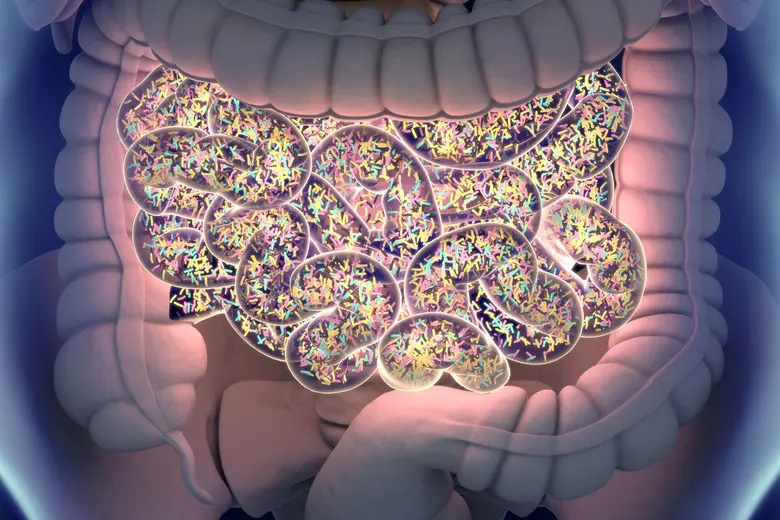Introduction to Probiotics and Their Growing Popularity
Definition and basic understanding of probiotics
Probiotics are live microorganisms that are intended to have health benefits when consumed in adequate amounts. These microorganisms are typically bacteria, such as Lactobacillus and Bifidobacterium, although some yeasts such as Saccharomyces boulardii, can also be classified as probiotics.
Probiotics are commonly consumed as part of fermented foods with live cultures such as yogurt, kefir and sauerkraut, as well as in dietary supplements. The concept of probiotics is based on the idea that the human body is home to a diverse community of microorganisms, collectively known as the microbiota, which play a crucial role in maintaining health.
Probiotics are thought to contribute to this microbial ecosystem by promoting the growth of beneficial bacteria and inhibiting the growth of harmful bacteria. As a result, probiotics have been studied for their potential to support digestive health, boost the immune system and even improve mental well-being.
While the research on probiotics is still ongoing, their popularity has grown significantly in recent years, and they are now widely available in various forms. It is important to note that not all probiotics are created equal and different strains may have different effects on the body. Therefore, it is essential to consult with a healthcare professional before starting a probiotic regimen to ensure that it is safe and appropriate for individual needs. In this post, we’ll take a look at the benefits of probiotics supplements.

Highlighting the natural sources of probiotics vs. supplements
Probiotics can be found in various natural sources such as yogurt, kefir, sauerkraut and kimchi. These natural sources of probiotics have been consumed for centuries and are considered to be effective in promoting gut health and overall well-being.
What is kefir? Is it a device that helps you locate lost keys? Nope. Something you plant in your garden? Nah. A new TikTok dance trend? Negative.
Here’s a hint: You can find kefir in the dairy section of your grocery store.
Kefir, pronounced “kee-feer,” is a fermented milk drink people have been sipping for thousands of years. And according to ancient wisdom and modern research, kefir is good for you.
“Studies are ongoing, but it seems there are many benefits of kefir,” says registered dietitian Amber Sommer, RDN, LD. “Like other foods that contain probiotics (good bacteria) and postbiotics (bacteria byproducts), kefir boosts gut health and provides a number of other health benefits.”
Source: health.clevelandclinic.org

What is kimchi? Kimchi is a traditional Korean banchan consisting of salted and fermented vegetables, most commonly using napa cabbage or Korean radish. Baechu kimchi is the most iconic and is made with napa cabbage, salt, garlic, ginger, scallions, fish sauce and gochugaru (Korean chili flake), which gives it its trademark spiciness and red color. “What makes kimchi special is that the salted/pickled vegetable is marinated, then fermented,” Yamashita says. “Going through these three stages gives kimchi its distinctive taste.”
Source: https://www.foodnetwork.com/

On the other hand, probiotic supplements are manufactured products that contain specific strains of beneficial bacteria. While these supplements can be convenient and provide a higher concentration of probiotics, they may not always be as effective as natural sources. Additionally, the quality and potency of probiotic supplements can vary, and they may also contain added ingredients and fillers that may not be beneficial for health.
Therefore, it is important to consider the natural sources of probiotics as a primary means of obtaining these beneficial microorganisms as they offer a more balanced and diverse range of probiotic strains along with other essential nutrients and health-promoting compounds.

Ultimately, incorporating a variety of natural sources of probiotics into one’s diet can help to maintain a healthy gut microbiome and support overall health and well-being.
Overview of the benefits of incorporating probiotics into one’s diet
Incorporating probiotics into one’s diet can provide a multitude of benefits for overall health and well-being. Probiotics are live microorganisms that are known to promote a healthy balance of gut bacteria, which is essential for proper digestion and immune function. By consuming probiotic-rich foods such as yogurt, kefir and sauerkraut, individuals can help to replenish and maintain the beneficial bacteria in their gut. This, in turn, supports a healthy digestive system and reduces the risk of gastrointestinal issues.
Additionally, probiotics have been shown to have a positive impact on mental health, with some research suggesting that they may help to alleviate symptoms of anxiety and depression. Furthermore, incorporating probiotics into one’s diet may also support a healthy immune system as the gut microbiota plays a crucial role in immune function.
Overall, the inclusion of probiotics in one’s diet can contribute to improved digestion, mental well-being and immune health, making them a valuable addition to a balanced and healthy eating plan. UltraFlora BiomePro from MetaGenics is, in the author’s view, a good source of probiotic with a high CFU count (colony-forming units – explained below). See the image at the top of the right-hand sidebar to learn more.

The Science Behind Probiotics: Understanding the Benefits
Explanation of how probiotics work in the body
When ingested, probiotics have the ability to colonize the gut and modulate the composition of the gut microbiota. This can lead to a variety of positive effects on the body, including improved digestion, enhanced immune function and reduced inflammation. Furthermore, probiotics can also produce beneficial compounds such as short-chain fatty acids and vitamins which contributes to overall health.
Additionally, probiotics can compete with harmful bacteria for nutrients and adhesion sites in the gut thereby preventing the growth of pathogenic microorganisms. Moreover, probiotics can also influence the immune system, stimulating the production of antibodies and other immune cells that help protect the body against infections and diseases.
Overall, the mechanisms by which probiotics work in the body are complex and multifaceted but their potential to promote health and well-being is undeniable.

The role of good bacteria in gut health and overall wellbeing
The role of good bacteria in gut health and overall wellbeing is a topic of increasing importance in the field of medicine and healthcare. Good bacteria, also known as probiotics, play a crucial role in maintaining a healthy balance of microorganisms in the gut, which in turn has a significant impact on overall wellbeing.
These beneficial bacteria help to break down food, produce essential nutrients and protect the body from harmful pathogens. They also play a key role in regulating the immune system and reducing inflammation. Research has shown that an imbalance of gut bacteria, known as dysbiosis, is linked to a range of health issues, including digestive disorders, autoimmune diseases and mental health conditions.
As a result, there is growing interest in the use of probiotics as a means of promoting gut health and preventing or treating various health conditions. Probiotic supplements and foods containing live cultures, such as yogurt, kefir and sauerkraut, are increasingly popular as a means of supporting gut health.
However, it is important to note that not all probiotics are created equal, and the specific strains and dosages of bacteria can vary widely. As such, it is important for individuals to seek guidance from healthcare professionals when considering probiotic supplementation.
In conclusion, the role of good bacteria in gut health and overall wellbeing is a complex and important area of study, with significant implications for healthcare and disease prevention.

Expert insights on the types of probiotics and what to look for in a supplement
When considering the types of probiotics and what to look for in a supplement, it is important to seek expert insights in order to make an informed decision. When choosing a probiotic supplement, it is crucial to look for products that contain strains that have been researched and proven to be effective for specific health concerns.
Additionally, it is important to consider the potency and viability of the probiotics as well as any additional ingredients or fillers that may be included in the supplement. Consulting with a healthcare professional or a knowledgeable expert in the field can provide valuable guidance in selecting the most suitable probiotic supplement for individual needs. You may wish to consider that naturopaths and holistic practitioners may be better positioned to advise you in this regard.
With the abundance of options available in the market, understanding the different types of probiotics and what to look for in a supplement is essential for making the best choice for one’s health.
Probiotics and Irritable Bowel Syndrome: A Relief for Many
How probiotics can help in managing IBS symptoms

Probiotics have been gaining attention in recent years for their potential to help in managing symptoms of irritable bowel syndrome (IBS). IBS is a common gastrointestinal disorder that can cause discomfort and distress for those affected. Studies have shown that probiotics, which are live microorganisms that provide health benefits when consumed in adequate amounts, may have a positive impact on IBS symptoms.
Probiotics work by restoring the balance of gut bacteria, which is often disrupted in individuals with IBS. By promoting the growth of beneficial bacteria and inhibiting the growth of harmful bacteria, probiotics can help alleviate symptoms such as bloating, gas and abdominal pain.
Additionally, some strains of probiotics have been found to have anti-inflammatory properties, which can be beneficial for individuals with IBS, as inflammation in the gut is often associated with the condition. While research on the specific strains and dosages of probiotics for managing IBS symptoms is ongoing, many individuals have reported improvements in their symptoms after incorporating probiotics into their daily routine.
Overall, the potential of probiotics to help in managing IBS symptoms is promising, and further research in this area may provide valuable insights into their effectiveness and optimal use for individuals with IBS.

Probiotics and Weight Loss
This article examines probiotics’ effects on weight loss. Several studies suggest that they can help you lose weight and belly fat.
https://www.healthline.com/nutrition/probiotics-and-weight-loss
Discussing specific strains of probiotics beneficial for IBS
Irritable bowel syndrome (IBS) is a common gastrointestinal disorder that affects millions of people worldwide. It is characterized by symptoms such as abdominal pain, bloating and changes in bowel habits.
Probiotics have been shown to be beneficial in managing IBS symptoms and specific strains have been identified as particularly effective in providing relief. Lactobacillus plantarum, Bifidobacterium infantis, and Saccharomyces boulardii are among the strains that have been studied for their positive effects on IBS.
Lactobacillus plantarum has been found to reduce abdominal pain and bloating, while Bifidobacterium infantis has been shown to alleviate both abdominal pain and bowel habit changes. Saccharomyces boulardii has been found to improve overall IBS symptoms, including abdominal pain and bloating.
These strains work by restoring the balance of gut bacteria and reducing inflammation in the gut, which are key factors in managing IBS. It is important to note that the effectiveness of probiotics can vary from person to person, and consulting with a healthcare professional is recommended before starting any new probiotic regimen.
Choosing the Right Probiotic Supplement: A Guide for Consumers
Factors to consider when selecting a probiotic supplement
When selecting a probiotic supplement, there are several important factors to consider in order to make an informed decision. First and foremost, it is crucial to evaluate the specific strains of bacteria included in the supplement. Different strains have different effects on the body, so it is important to choose a supplement that contains strains that have been clinically proven to provide the desired health benefits.
Additionally, the potency of the supplement is an important consideration. The potency of a probiotic supplement is measured in colony-forming units (CFUs), and it is important to choose a supplement with a high enough CFU count to be effective. Furthermore, the viability of the bacteria in the supplement is a key factor to consider.
Probiotic bacteria are delicate and can be easily damaged by heat, moisture and stomach acid, so it is important to choose a supplement with bacteria that are able to survive the journey through the digestive system.
Finally, it is important to consider any additional ingredients in the supplement, such as fillers, preservatives or allergens, to ensure that the supplement is safe and suitable for individual dietary needs. By carefully evaluating these factors, individuals can make an informed decision when selecting a probiotic supplement that will best support their health and well-being.

Understanding labels and the significance of CFUs
Understanding labels and the significance of CFUs is crucial for consumers who want to make informed decisions about their health and wellness. Labels on food, supplements and probiotics can be confusing and overwhelming, but they provide valuable information about the product’s contents and potential benefits.
CFUs, or colony-forming units, are a measure of the viable bacteria or microorganisms in a product, particularly probiotics. This number indicates the potency and effectiveness of the product in delivering the promised health benefits. It is essential for consumers to understand the significance of CFUs in order to choose products that will truly support their digestive health and overall well-being.
By paying attention to CFUs and other information on labels, consumers can ensure they are getting the most out of their purchases and making choices that align with their health goals. In addition, this understanding of labels and CFUs can help consumers avoid products that may not deliver the desired results or could even be harmful to their health.
Therefore, taking the time to educate oneself about labels and CFUs is a valuable investment in one’s health and can lead to better decision-making when it comes to choosing products that support overall wellness.

Tips on storing and using probiotics to maximize benefits
Probiotics are live bacteria and yeasts that are good for your health, especially your digestive system. They are often referred to as “good” or “friendly” bacteria because they help keep your gut healthy. If you want to maximize the benefits of probiotics, it’s important to store and use them properly.
When it comes to storing probiotics, it’s best to keep them in a cool, dry place. This will help to ensure that the live bacteria in the probiotics remain active and effective. Additionally, it’s important to check the expiration date on the probiotics and make sure that you use them before they expire.
When it comes to using probiotics, it’s important to follow the instructions on the packaging. This may include taking them with food or at a certain time of day. It’s also important to be consistent with taking probiotics, as regular use is key to experiencing their benefits.
Lastly, it’s important to consult with a healthcare professional before starting any new supplement regimen, including probiotics, to ensure that they are safe and appropriate for your individual health needs. By following these tips, you can maximize the benefits of probiotics and support your overall health and well-being.
I hope you have enjoyed this content. If you have questions or comments I’d love to hear from you in the ‘Leave a Reply’ section below. Finally, if you’d like to be notified as updates are made to the content on this platform please enter your name and best email in the form below.

Grant Rayner
Your post provides a detailed examination of probiotics, emphasizing their significant role in gut health, immune response, and mental wellness. It’s intriguing to consider the various sources of probiotics, from natural foods to supplements, and their differing impacts on health.
This leads to an interesting point about the effectiveness of probiotics. Your article highlights the variation in efficacy between natural and supplement-based probiotics, focusing on how specific strains address different health concerns.
Reflecting on your blog’s insights into probiotics, a pertinent question emerges: How does the existing gut microbiome in our bodies interact with probiotics introduced through external sources like food or supplements? This inquiry delves into the personalized nature of probiotic consumption. It explores how the unique composition of an individual’s gut flora might affect the absorption and effectiveness of these beneficial microorganisms.
Hello Sonia and thank you for your comments and question. Research is ongoing into the relationship of the gut microflora to disease. The health benefits of currently available probiotics and prebiotics have not been conclusively proved. Researchers are trying to figure out exactly how probiotics work. What we do know is that certain foods or probiotic supplements add to your existing supply of friendly microbes. Generally speaking, they help fight off the less friendly types and boost your immunity against infections. They’re meant to prevent and treat dysbiosis — an imbalance or a deficit of beneficial microbes in your microbiome. When they work, the microbes take up residence on or in your body, adding to the populations already living there.
I hope this helps your understanding of what probiotics do for us. As more is learned about the mechanisms of interaction between the ‘good’ bacteria and the ‘bad’, we will better understand how absorption and the effectiveness of probiotics contributes to overall health.
Grant Rayner
I have had IBS for many years and the bloating and pain used to be horrible. After many twists and turns, I found out that with an elimination diet, I have to avoid a lot of high-histamine foods, like tomatoes and pork. But I would like to implement them in my diet again, would probiotics help with this, and do these supplements survive the acid environment of the stomach? thanks!
Hello Lizzy and thank you for your comments and question.
Probiotics are microscopic bacteria that coexist in your digestive tract and help your body break down and process foods. Some strains of beneficial gut bacteria, known collectively as probiotics, display histamine-increasing properties, while others offer histamine-lowering effects. While histamine presents widely throughout the body and serves many functions, the abundance of histamine production and uptake inside the digestive system has led researchers to investigate the root causes of excess histamine and the potential for probiotic treatment in stabilizing it.
As a general statement, probiotics for histamine intolerance offers significant opportunities to reduce histamine production and treat histamine intolerance. However, if you have experienced more significant symptoms of IBS, you should consult with your doctor who would be more familiar with your particular set of circumstances and would be in a better position to determine if the re-introduction of these types of foods could be tolerated.
Your comments and questions are most appreciated.
With so many more people talking about probiotics and linking it to gut health, I have often wondered what it was all about. So this post is very helpful to explain the benefits of probiotics, and how it works in your body. I also now have a better understanding of the difference between natural probiotic sources and supplements.
You mention kefir as a good natural source of probiotics. But is kefir the same as buttermilk? Can buttermilk be substituted for kafir? Or are they completely different products?
When using yoghurt as a source of probiotics, should it be natural yoghurt, rather than flavoured yoghurt? Should one choose yoghurt with a live culture in it? Is Greek yoghurt a better probiotic source than other natural yoghurts? Thank you for clarifying.
Hello and thank you for your comments and questions.
Kefir is not the same as buttermilk. Unflavored kefir is a fermented milk beverage that looks and tastes like buttermilk. You can use plain kefir to replace buttermilk cup for cup. One notable difference is the probiotic content. Kefir typically contains a higher concentration and variety of probiotic strains compared to buttermilk. This makes kefir a more potent option for promoting a healthy gut microbiome and supporting digestion.
As far as yogurt is concerned, natural and flavored both have protein, calcium and probiotics (the good bacteria that help keep your gut healthy). Choosing the plain variety for both types of yogurts is recommended. The flavored varieties add unnecessary sugar—some may have as many as 7 teaspoons of added sugar.
While all yogurts have live and active cultures, not all have probiotic strains that provide specific health benefits such as supporting gut health and contributing to the maintenance of a balanced gut microbiota.
Finally, Greek yogurt can contain twice as much protein per serving as regular yogurt. Protein is an important part of a healthy diet and helps keep you fuller longer. If either type of yogurt has added fruits or toppings, the sugar content can be higher than normal, but typically, Greek yogurt is lower in sugar and carbs. While regular yogurt tends to have fewer calories and more calcium, Greek yogurt has more protein and less sugar — and a much thicker consistency. Both types pack probiotics and support digestion, weight loss, and heart health.
I hope this has been helpful. I thank you for your comments and questions! Most appreciated.